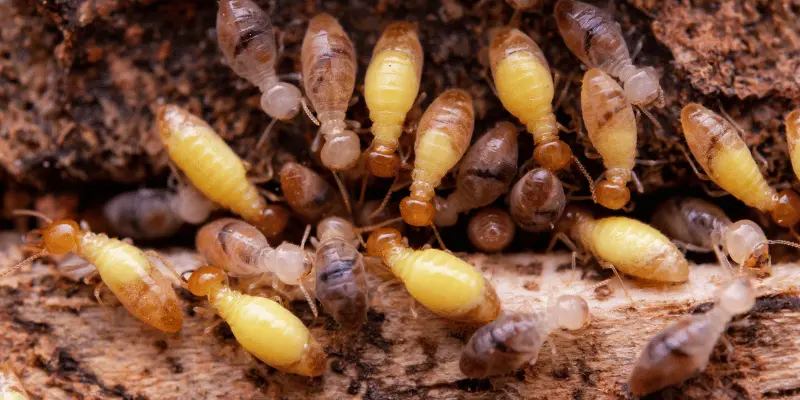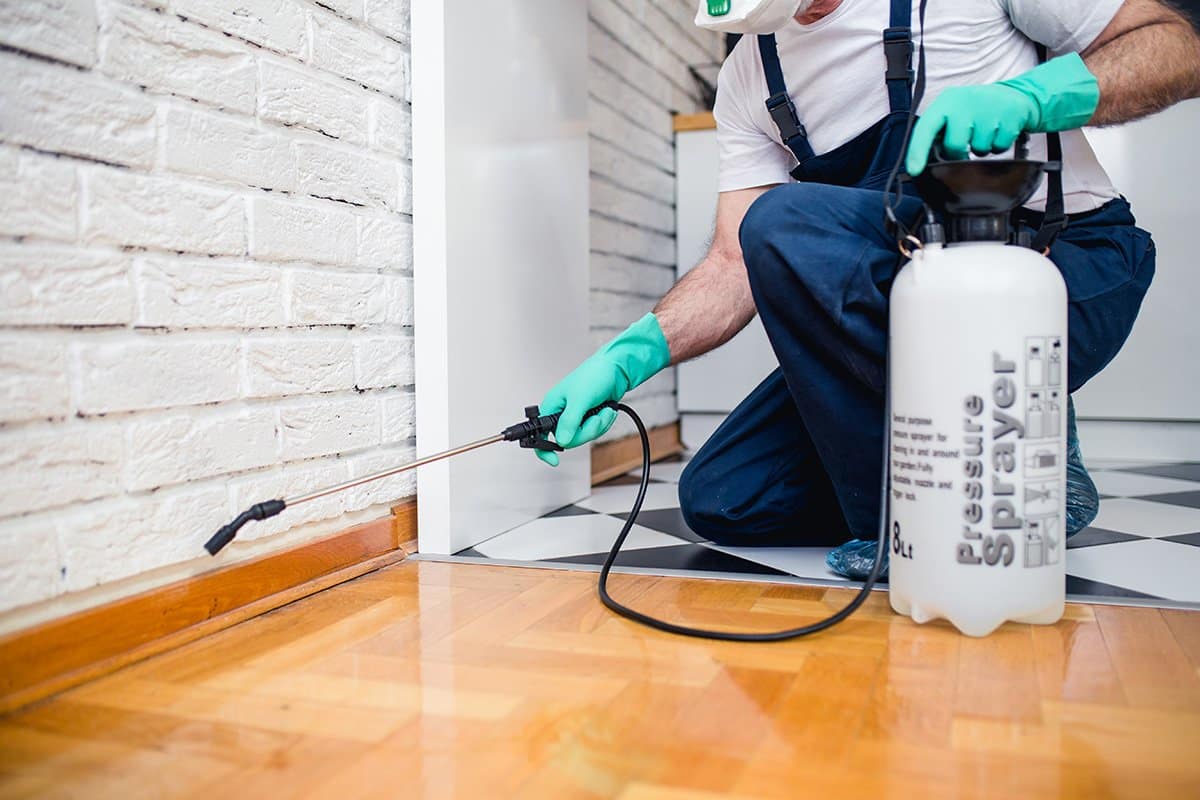Premier Termite Control Services: Guarantee Long-Term Defense for Your Residential property
Premier Termite Control Services: Guarantee Long-Term Defense for Your Residential property
Blog Article
Environmental Effect of Parasite Control: Harmonizing Efficiency With Sustainability
The environmental effect of parasite control is an important concern that calls for a fragile equilibrium in between achieving efficiency in managing parasites and guaranteeing sustainability of our environments. From the use of hazardous chemicals that permeate into our dirt and water to the unintentional effects on non-target species, the consequences of traditional parasite control practices are far-ranging.
Dangerous Chemicals in Bug Control
The use of damaging chemicals in pest control poses considerable ecological and health risks that require mindful consideration and reduction methods. Chemicals, pesticides, and herbicides are frequently made use of to eliminate insects, but their extensive application can result in unintended consequences. These chemicals can contaminate soil, water resources, and the air, impacting not only the targeted pests but likewise valuable pests, wildlife, and humans.

To address these risks, incorporated bug management (IPM) techniques are being advertised as a more sustainable choice. IPM involves a mix of approaches such as biological control, environment adjustment, and the targeted use chemicals as a last resource (ant control lincolnton nc). By taking on an all natural strategy to pest control, we can minimize the ecological and health influences connected with unsafe chemicals while properly taking care of pest populaces
Impact on Non-Target Species
Taking into consideration the unintentional consequences of pest control techniques, the influence on non-target varieties is an essential facet that requires thorough assessment. While insect control actions aim to target specific bugs, other microorganisms in the ecological community might be inadvertently influenced. Non-target species, consisting of advantageous bugs, birds, mammals, and even plants, can experience straight or indirect injury from pesticide applications or organic control methods.
Pesticides can have lethal or sub-lethal impacts on non-target varieties. Pesticides made to fight a specific insect pest might hurt pollinators like bees or all-natural predators such as ladybugs. In addition, chemical deposits can accumulate in the setting, impacting non-target organisms in time. Likewise, organic control representatives, otherwise species-specific, can position threats to unintentional targets, interfering with the environmental balance.
To alleviate the influence on non-target species, incorporated pest management (IPM) methods that emphasize a holistic technique to pest control are advised. These approaches prioritize using eco-friendly methods, minimizing harm to advantageous microorganisms while effectively managing pest populaces. Conducting thorough threat assessments and keeping track of the end results of pest control efforts are important steps in safeguarding non-target varieties and promoting total community wellness.
Dirt and Water Contamination
Unplanned ecological consequences of pest control methods extend beyond impacting non-target varieties, with significant effects for soil and water contamination - ant control. Chemicals, herbicides, and chemical fertilizers utilized in pest control can leach into the dirt and pollute groundwater, posturing a danger to both marine and terrestrial ecosystems.
Water contamination is an additional important concern connected with insect control methods. Drainage from agricultural fields treated with chemicals can lug these chemicals right into close-by water bodies, affecting aquatic organisms and water quality. Contaminants in water sources can have far-ranging effects, affecting not only marine life but also human health and wellness through the usage of infected water or aquatic organisms. To mitigate soil and water contamination from insect control activities, integrated parasite administration strategies that focus on sustainability and lessen chemical inputs are crucial.
Air Air Pollution From Chemical Use
Direct exposure to air-borne chemicals during farming applications presents a considerable issue for air pollution control procedures. When chemicals are sprayed onto plants, they can volatilize into the air and form unpredictable organic substances (VOCs) and other airborne pollutants. These chemicals can contribute to the development of ground-level ozone, a major component of smoke that can have harmful results on human health and wellness, crop performance, and general air quality. Furthermore, pesticide drift, where chemicals are lugged by the wind to unplanned areas, can bring about the contamination of close-by ecosystems and water bodies.

Strategies for Lasting Parasite Control
In the realm of agricultural methods, applying lasting pest control techniques is extremely important for maintaining ecological balance and safeguarding plant yields. Lasting bug control stresses making use of eco find more friendly methods to handle insect populaces effectively while reducing damage to non-target microorganisms and environments. Integrated Insect Management (IPM) is an extensively taken on strategy that integrates biological, cultural, physical, and chemical control approaches to accomplish long-term pest monitoring options.
Plant turning and diversification are also reliable techniques to disrupt pest life cycles and develop less desirable problems for insects to thrive. Inevitably, by integrating these lasting bug control strategies, farmers can attain an equilibrium in between pest monitoring efficiency and ecological stewardship.
Final Thought
Finally, the environmental effect of pest control techniques must be meticulously considered to stabilize performance with sustainability. Damaging chemicals utilized in parasite control can lead to dirt and water contamination, air pollution, and damage non-target varieties - termite control services. It is crucial to carry out lasting insect control methods to minimize these negative impacts on the setting and advertise a much healthier ecosystem for future generations
By embracing an all natural approach to pest control, we can reduce the environmental and wellness impacts connected with unsafe chemicals while effectively managing pest populations.

To reduce the air contamination triggered by pesticide usage, it is crucial to embrace integrated bug management methods that prioritize the use of non-chemical pest control approaches, such as crop rotation, all-natural predators, and resistant plant varieties. Sustainable pest control emphasizes the usage of environmentally pleasant approaches to handle bug populations properly while reducing harm to non-target organisms and ecosystems. Integrated Pest Administration (IPM) is an extensively taken on strategy that combines biological, cultural, physical, and chemical control methods to attain lasting parasite administration services.
Report this page